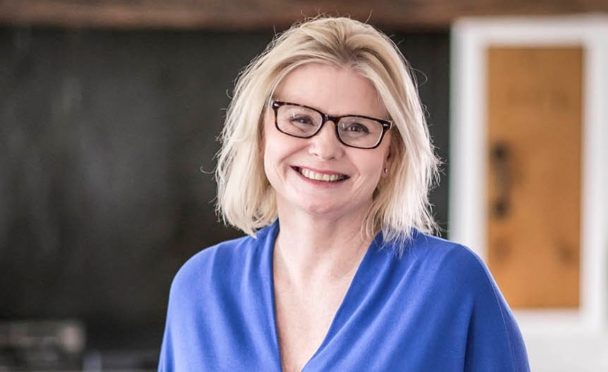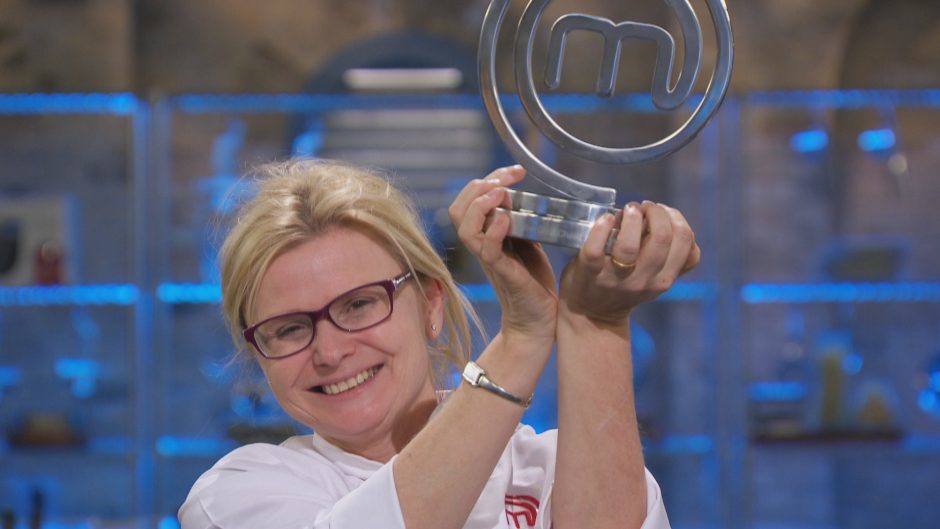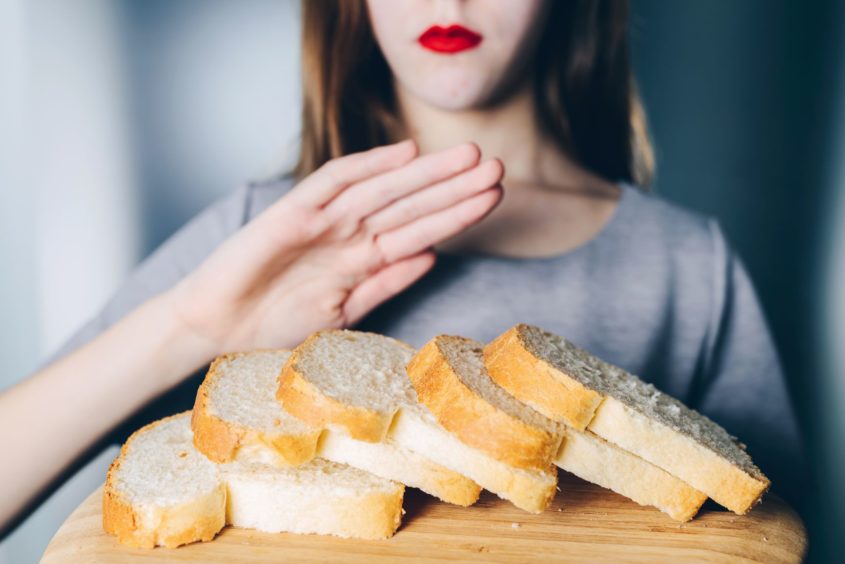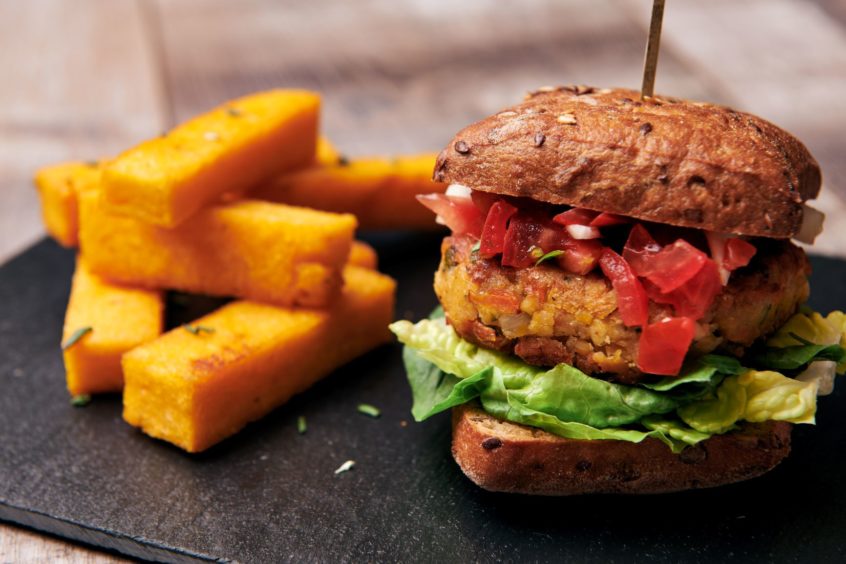Jane Devonshire, ambassador for the Coeliac UK charity, shares the highs and lows of learning to live a gluten-free life.
Watching her lift the MasterChef trophy in 2016, many viewers would have thought this was the moment Jane Devonshire conquered her toughest challenge.
But the truth was she had already overcome adversity, having shown stage 2 breast cancer the door (she has been in remission since 2012), whilst also fighting for her youngest son, Ben, now 17, to be diagnosed with coeliac disease – an autoimmune condition which causes damage to the gut lining if gluten is eaten. The only treatment is the avoidance of foods containing gluten altogether.
Though it was obvious to Jane, 50, from the outset that her son was suffering, she struggled to be taken seriously.
She explained: “It was a fight to get him diagnosed. Being the youngest of four I knew there was something wrong. I would go to the doctor and say, ‘He’s screaming, he’s unhappy, he’s not flourishing,’ and my doctor at the time would just reach for the antidepressants for me.’
“It was because I wasn’t articulate, I was upset – all the things you are when you have a child who is unwell and you’re trying to take care of three others.
“In the midst of all this we moved house and my new GP took one look at me and one look at him and sent us off to the dietitian and within three months we had a diagnosis.
“Almost overnight I had the Ben I’ve had ever since which is a really lovely, kind, gentle, laid-back boy. I often wonder what would have happened if I hadn’t been an experienced mum, would I have just thought I was overreacting?”
Scroll down to watch Clare’s conversation with Jane Devonshire.
Coeliac disease is thought to affect at least one in 100 people in the UK, but only 30% of those with the condition are currently clinically diagnosed. If someone with coeliac disease accidentally eats gluten – commonly found in breads, pastas, cereals, cakes and biscuits – they are likely to be unwell within a few hours. Symptoms can vary but include diarrhoea, stomach aches and vomiting.
Left untreated, the condition can lead to more serious complications, including cancer. With so many cases going undetected, Jane, who is an ambassador for the charity Coeliac UK, wants to help raise awareness.
She said: “One of the things I’m really passionate about is to get more people diagnosed. It takes on average 13 years to diagnose someone with coeliac disease and over that time you can get an awful lot of associated health and social problems.
“Particularly with children, the saddest thing is we grow up and food is this huge pleasure and thing that we share with family and friends. All of a sudden you have a child who can’t do that, a child who wants to go to McDonald’s and eat the food others do.
“At school they might appear lethargic or be running to the toilet all the time and that’s embarrassing.. so it’s a social issue as well. It’s important we get children diagnosed so we can teach them how to deal with it and to live their life with an autoimmune disease.”
From the day Ben was diagnosed Jane turned her home into a gluten-free zone – apart from an area in their utility room where her other children could prepare snacks.
“It’s what we call the ‘sin bin’ because I couldn’t get [my other kids] to eat gluten-free bread – there were certain things that were a step too far. But my kitchen is gluten free, it has to be, I just can’t risk it.
“It comes back to the social thing. When Ben was younger he wouldn’t get invited to parties because it was a pizza party or parents couldn’t cope [with his dietary needs], so at home that wasn’t going to happen. It was important we ate as a family. I couldn’t bear the thought of him eating a separate dinner while we all ate something else. Most of the time we’re all gluten free and then if we go out and we’re not with him we’ll do something different.
“When Ben was younger he’d go through stages where he’d want to try certain foods and couldn’t but it’s a lot easier now. A couple of times he has been ‘glutened’ and he’s been very ill. I know some people are non-symptomatic and that must be difficult to understand, but Ben is symptomatic and it’s not worth the pain for him of eating something [with gluten].
“It can be challenging when you go out – not when you plan to go out, it’s when you’re maybe driving down the motorway and you stop off and there is nothing for them to eat and you can all go and grab whatever you need, but there’s just hummus and carrots for him.”
One of the things I’m really passionate about is to get more people diagnosed. It takes on average 13 years to diagnose someone with coeliac disease and over that time you can get an awful lot of associated health and social problems.
Jane Devonshire, MasterChef Winner, 2016
With nearly 16 years having passed since Ben was diagnosed, Jane has seen a big change in the quality and availability of gluten-free products.
“I’ve noticed a real difference in the quality – particularly with pasta and bread. The first gluten-free pastas we got hold of were awful, they would just go to slime and sludge and they smelt horrible. Bread was also horrible. Those have really improved, and with gluten-free pastas now you would barely know the difference.
“Most of the stuff that’s available is good if you’re on the go, but there is a problem in that a lot of it is high in salt and sugar so we’ve got a long long way to go, although it is a lot, lot better.”
People medically diagnosed with coeliac disease can access some gluten-free staple foods on prescription, including in Scotland, but some clinical commissioning groups in England have now reduced or stopped prescribing items, according to Coeliac UK, an independent charity supporting people with the condition.
One of Jane’s hopes is that she can help people to lessen the expense of the condition, by showing them how to cook meals and snacks at home to save on the cost of ready-made foods.
She said: “The financial impact of being gluten free is quite hefty for a lot of families and that’s something I’m passionate about addressing because a lot of the gluten-free books when I first got hold of them required buying different flours or food that I couldn’t get hold of or it was expensive so I decided the books I was going to write would use ingredients I could get in my local supermarket.”
This week is Coeliac Awareness Week, around which there are a variety of online events on the Coeliac UK website, and it will be focussed on raising awareness of the disease to help find the thousands of children who are currently undiagnosed.
The charity has two smartphone apps to help those with coeliac with choices around eating gluten free at home and when they’re out and about too. The website also has a symptom checker and is encouraging people to visit the website all week and join in the many activities that are planned.
Jane added: “One of the positives to come out of this awful situation we’re all in at the moment is that sense of community, and Coeliac UK has been fantastic with that and helping people struggling with different recipes and food shortages.
“I’m a Coeliac UK ambassador which I’m so proud of, so the first thing I’m going to do is a cook-along with some lovely and really easy peanut butter chocolate chip cookies that the kids can be involved in. There will be a tea party, and we’ll be judging cake competitions.
“It’s great for us all to be able to come together and share ideas. I know Coeliac UK have opened up their platform so there are thousands of recipes you can access which is hugely important at the moment. You can join in online through the Coeliac UK website and there’ll be different activities throughout the week.”
Watch excerpts from Clare’s conversation with Jane Devonshire..



